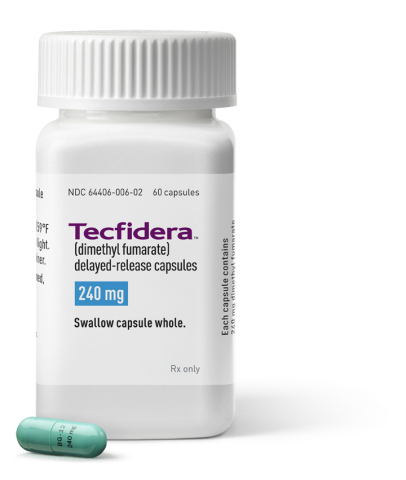The approval of Biogen Idec’s MS therapy Tecfidera follows months of breathless Wall Street hype, and it looks like doctors are psyched for the drug, too. In a MedLIVE PULSE survey conducted for MM&M by WorldOne Interactive, 40% of U.S neurologists polled said they’re currently warehousing patients in anticipation of Tecfidera.
Tecfidera faces competition from Sanofi’s Aubagio and Novartis’ Gilenya, but the Biogen Idec drug comes to the market with some advantages. Gilenya boasts a similar efficacy profile but carries cardiovascular risks, while Aubagio has been plagued with efficacy questions.
Two-thirds of physicians (out of 50 total) told WorldOne Interactive that the availability of Tecfidera would make them less likely to prescribe Aubagio, and 68% said the same about Gilenya. One neurologist noted: “Starting patients on Tecfidera is so easy compared to Gilenya. Why use Gilenya given this new medication?” Another wrote: “There is now very little room for Aubagio and Gilenya.”
While they may be less likely to prescribe other treatments with Tecfidera now approved, that’s not to say they’ve written them off completely. Four-fifths of doctors polled still believe Aubagio has a place in the pharmacopeia, while 84% believe Gilenya should remain in the neurologist’s repertoire, because “some patients can be good candidates for Gilenya,” and “alternative treatment options should be made available,” in case a patient “cannot tolerate the Tecfidera,” said respondents.
Either way, both the Sanofi and Novartis products would seem to be in danger of becoming the alternative and not the go-to treatment in light of their new competitor.
Some estimates say Tecfidera might generate $3.25 billion and corner a fifth of the market initially, and as much as $6 billion by 2020. It’s expected to be a safer and more effective treatment than other oral therapies, and it’s indicated for the most common form of MS (relapsing-remitting multiple sclerorsis or RRMS). In clinical trials, it reduced relapse rates by up to 43%. Oppenheimer analyst Dave Ferreiro blustered to the Boston Business Journal, “This is on the order of a Lipitor…It’s hard to imagine a drug getting much bigger than that.”
Patients are keen on oral therapies. In an MDLinx/M3 USA survey, 56% of polled neurologists said they would prescribe an oral treatment over an injectable. Said Al Sandrock, Biogen Idec’s chief medical officer: “Having a broad array of treatments is important. Patients welcome an oral therapy. Injecting yourself with a needle is an unnatural act.”
Now that it’s gained a nod from the EU for marketing authorization and approval in the U.S., the biotech will use its already assembled sales force to call on neurologists in the U.S. and 30 other countries. Tony Kingsley, Biogen Idec EVP, commercial operations, said: “We will be able to get supply into the channel in a very short period of time. MS is a complex disease encompassing many subsets of patients. So we want to be prepared to focus on each of these subsets.”
One hurdle they still face is its pricing, which will be a point of great focus for both physicians and investors in the coming days. Neurologists from the WorldOne Interactive MedLIVE PULSE study indicated that 84% of physicians believe sticker shock could dampen enthusiasm for the new treatment and potentially keep it off government formularies.
In an investor call, RBC capital markets analyst Michael Yee estimated the drug will fall in the $50,000-$55,000 range, which places it squarely between its rivals: Gilenya comes in at $58,000 for a year of treatments while Aubagio is priced at $45,000. Company spokeswoman Monique da Silva said that sales for Tecfidera will start in the next few days and pricing information would be released then.








